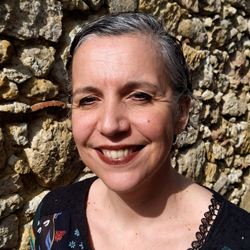Park W is a vast protected area of Sudano-Sahelian savanna shared by Benin, Burkina Faso, and Niger. As a refuge for the largest population of elephants in West Africa and the only viable population of lions in the region, it has long been a prime target for poachers. I first started learning about Park W and its poaching challenges in 2013 when Born Free was supporting the Burkina authorities in equipping a team with field equipment. Six years down the road, training for guards posted in Park W remains an urgent priority now that the poaching threat has expanded and become a terrorism threat that endangers animals and human populations alike.
Born Free USA, through a project funded by USAID, is collaborating with Freeland to provide specialized PROTECT-DETECT train-the-trainer training tailored to West Africa. The main goal of that initiative is to equip the authorities of Burkina Faso, Niger, and Benin with the advanced enforcement skills they need to fight against poaching and wildlife trafficking. Training modules focus on delivering first aid in remote areas, patrolling, ambushing poachers, interviewing suspects, cultivating informants, processing evidence, and securing a crime scene, among others. Through a train-the-trainer approach, we are equipping governments to train their own staff, which is key to the sustainability of the combat against poaching. Guards will be trained in the park to ensure real-life training conditions.
In January 2019, after our team had made all logistical arrangements to hold the preparatory meeting in Burkina Faso in an area more secure than Park W, security conditions in the country deteriorated and we received “do not travel” instructions from the USAID. The preparatory meeting finally took place in May, gathering representatives of the Benin, Burkina Faso, and Niger governments, Freeland trainers, USAID/WABICC, and our team.
When you finally get to the field after planning these types of high-level meetings, it usually feels like a victory in itself. Funding is secured and procured, the flights are booked, all logistical arrangements are made, all participants and trainers are gathered and ready to get to work, and a celebratory tone reigns over the first breakfast we share before the activities actually start. Aurora Luongo and I were having just such a breakfast with the Freeland trainer in Cotonou – an ex-army veteran specialized in anti-poaching training techniques – and, as is very common in West African hotels, the TV in the breakfast room was on full volume. As we were tuning it out to continue our discussions, the news report started broadcasting confirmation that two French tourists had just been kidnapped on the Benin side of the Pendjari park in the W-Arly-Pendjari Complex, not far from where we were to hold our preparatory meeting. The celebratory coffee time quickly turned into a very practical readjustment of our preparatory meeting agenda to focus meeting discussions on team security for field work. While we successfully managed to carry on with the mission thanks to skilled and experienced government contacts familiar with the threat and able to organize an armed escort for our team in short order, this made it very real for me as a team and project leader.
The link between terrorist organizations and poachers/wildlife criminal activity in parks is something we have been researching as part of our capacity-building work in the West African region for a long time. This threat must be tackled urgently by governments but the threat itself makes it almost impossible to carry on support activities.
Join us in supporting and celebrating the heroes that keep the threat at bay for wildlife and carry on with their activities regardless of the danger they face.
Keep Wildlife in the Wild,
Alice
